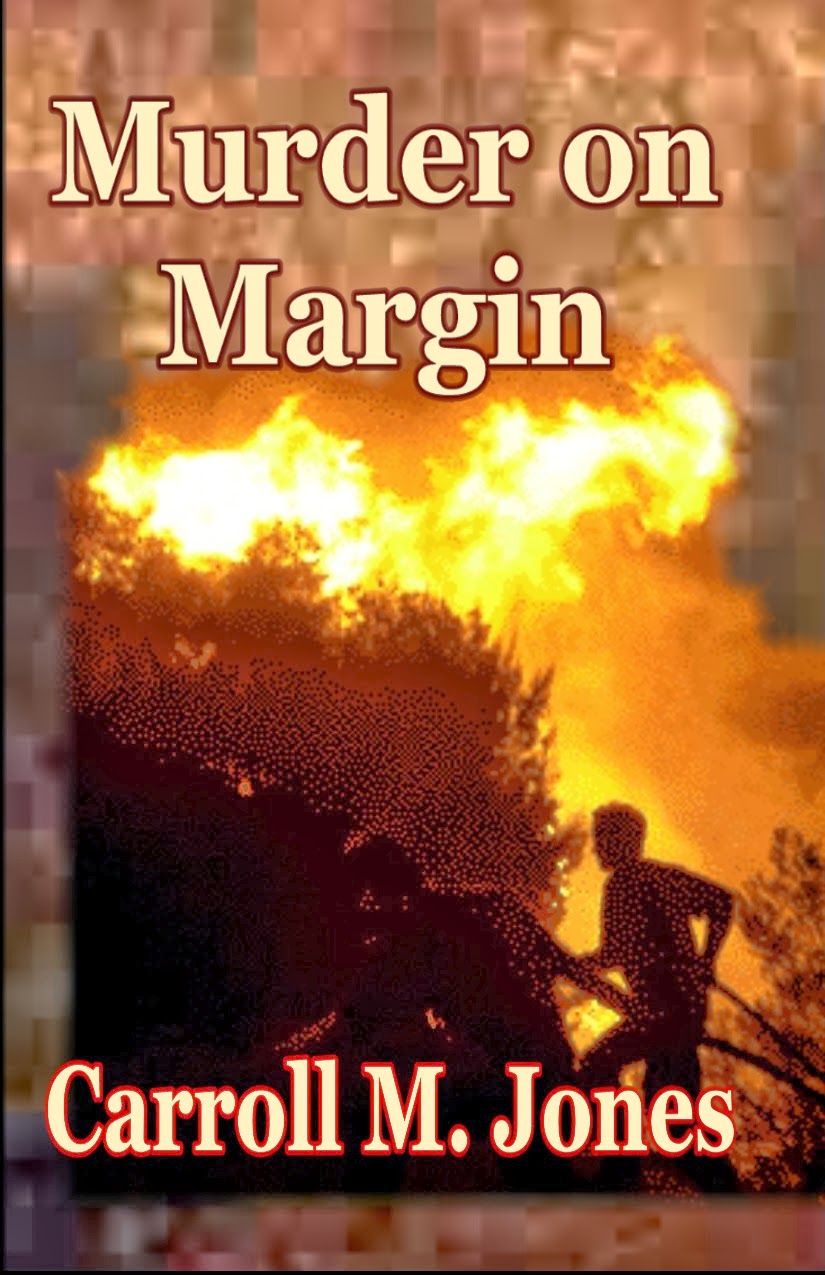When money goes missing from his firm, stockbroker Mike Wolfe, despite
his innocence, is convicted of embezzlement. After his early release from
prison due to firefighting, Mike is determined to set the record straight. Then a man from
Mike's old firm is brutally murdered and he finds himself, once again,
suspect number one. A great read!
Question from the e-mail? How much dialogue is too much? My writers' group says I put in too much dialogue "that doesn't go anywhere." Any idea what they mean by that?
Answer: First of all, in dialogue, nobody has small talk. No one says, "Hi, how are ya?" And the second thing is not to let the characters repeat stuff that the reader already knows.
This is a guess, okay? Because I haven't read your story. But maybe the dialogue is not about what's happening next in the story, but about what has happened...
In a story, you only need to write dialogue when they are talking about something important. The rest can go into narrative and a lot can be assumed. For instance, take this story situation: In Scene one, Sally’s brother John was in a 40-car pile up on the Interstate. He lies for hours, pinned in the car, then finally is picked up and taken to the Emergency Room, by an ambulance. There he is rushed into surgery while (end of scene hook) a nurse tosses his wallet to the ward clerk, yelling, “Call his next-of-kin.” In scene two: Sally rushes out of the house and meets her neighbor, Paul, a friend of John’s. Here’s scene two:
Sally grabbed her jacket and headed for the door, frantic to get to the hospital and find out how badly John was hurt. (Opening Hook) It wasn’t until she actually got into the garage that she remembered John had been driving her car the night before, because his was in the repair shop. (Shows confusion caused by the emergency situation) Without a second thought for her damaged car (shows her first concern is her brother’s life), Sally hurried out to the street and all but ran toward the bus stop.
Half a block down the street, Paul Anderson, a friend of John’s, put down his rake and caught up with Sally. “Where are you going in such a hurry? What’s wrong?” (Now in reality he would probably have said, “Hey, Sally. Wait a minute. I want to talk to you.” But that would not have moved the story forward. Dialogue should always move the story forward and it should always be about something important. Plus you never have to waste dialogue telling a character something the reader already knows. Let them get on with what happens next.
“It’s, John! He’s in the hospital.” Sally told Paul about the accident. (Narrative used about the accident. No need to repeat all the stuff about the 40-car pile-up and John’s being pinned in the car for hours — the reader already knows that.)
“No wonder you are upset. Come on, I’ll drive you.” Paul took off his gardening gloves and headed for his pickup. By the time he got the driver's door open, Sally was already waiting inside.
“Hurry!” Sally gave Paul a worried look. “I have to find out how he is.”
Wednesday, March 12, 2014
Subscribe to:
Post Comments (Atom)


I've read books that were 90% dialogue, but as you say, they keep moving the story forward, and can be fascinating.
ReplyDelete